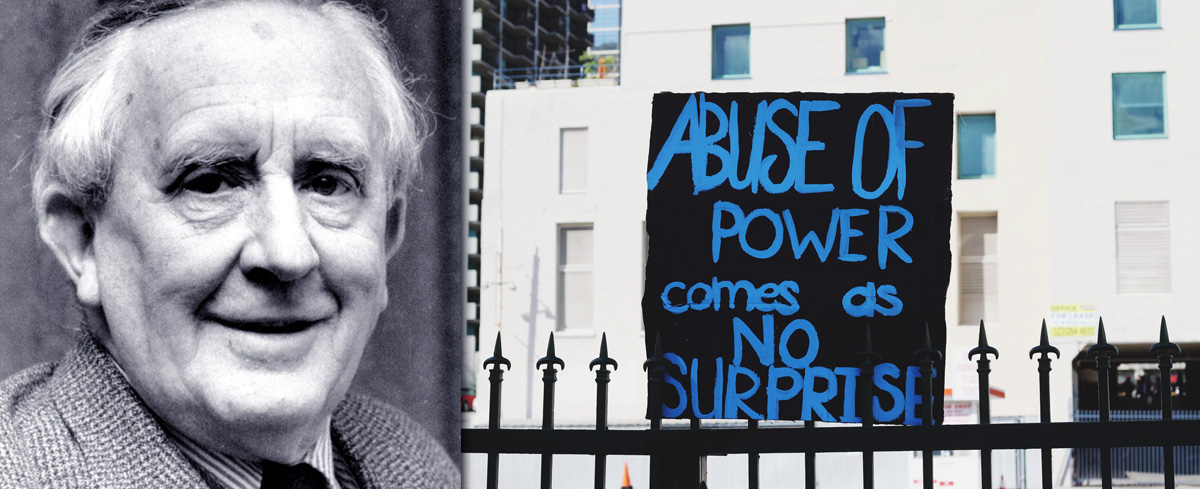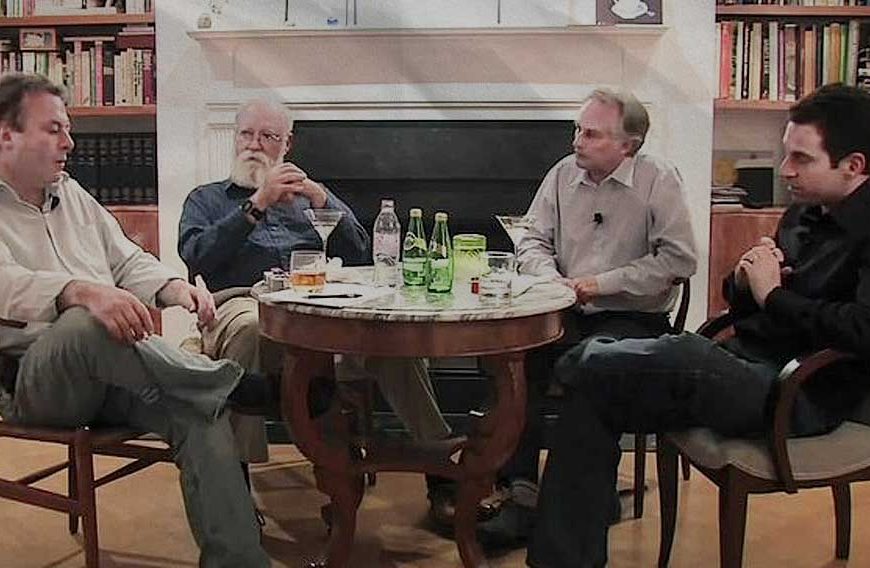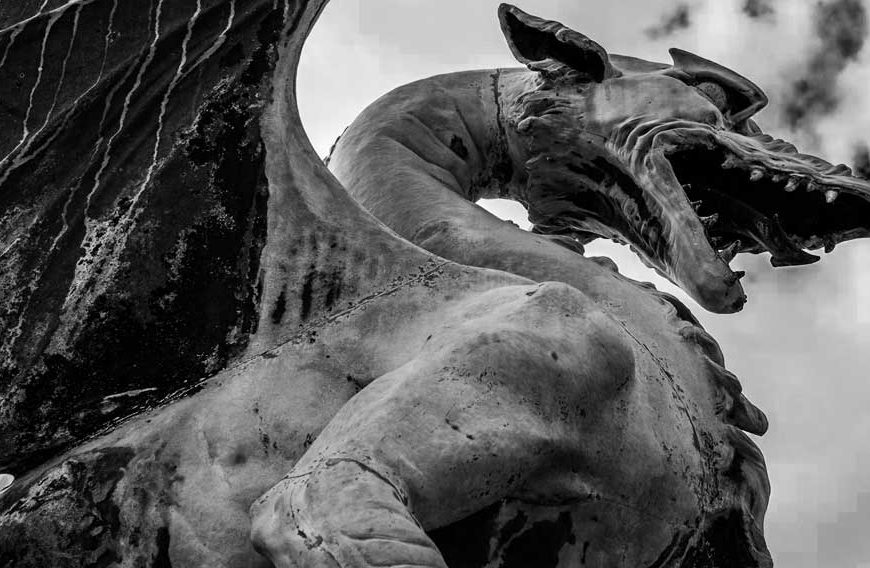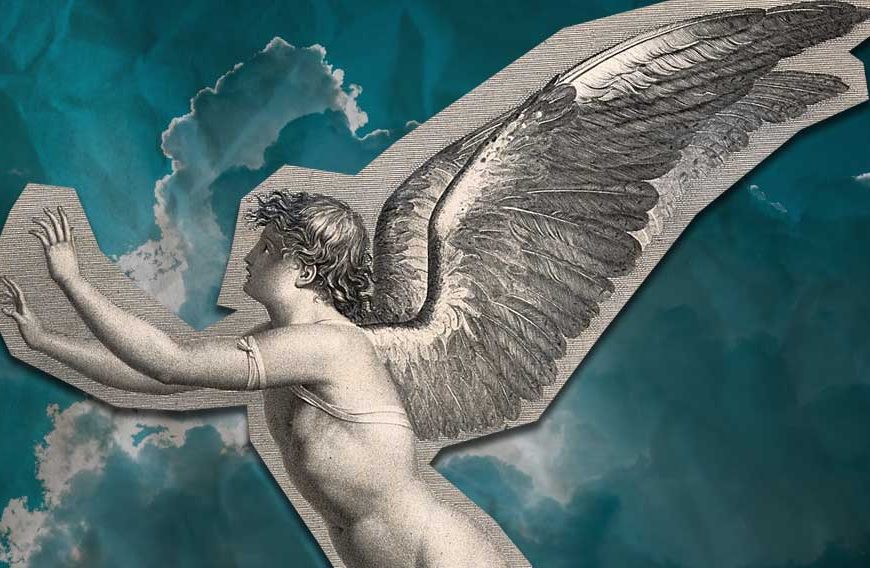While most of us are fans of ‘The Hobbit‘ and ‘Lord of the Rings‘ novels, some of us probably aren’t as up to date on the rest of J.R.R.Tolkien’s work and thought. The majority would know that he was friends with C.S. Lewis, and was part of the Inklings. An Oxford circle of writers, who would meet on an informal basis in order to compare and critique each others’ writing.
The group informally (and unconventionally) included the straight-talking, Dorothy Sayers, and is said to have centred around the groups’ shared Christian faith and Christian values.1 Though Sayers apparently never attended the Inking meetings, she was a close friend of C.S. Lewis and Charles Williams (British Poet and Theologian); it’s for this reason that Sayers is considered a satellite member of the group.
When it comes to Tolkien, in particular, most would know that he was a professor with a passion for Nordic history. What few would know is where Tolkien stood politically.
In a somewhat convoluted letter to his son, Christopher, in 1943, some of Tolkien’s political views come to light. Tolkien appears to give his support to what Jacques Ellul later called, Christian Anarchy.2
According to Ellul, Christian Anarchy is a paradoxical, ‘anti-political political position’, which
a) acknowledges that ‘the presence of God in His revelation in Jesus Christ is the necessary condition for human liberation.’ (‘Jesus & Marx’, p.162)
b) understands that ‘power is dangerous and devouring; participating in political action and reflection on behalf of the [big G] government is an undertaking that inevitably puts true faith in danger. For example, Jesus was perfectly acquainted with the resistance party, but refused to join it.’ (Ibid, pp.164-167)
c) promotes the fact that ‘political power only becomes acceptable when it remains on a humble level when it is weak [read: small g, government], serves the good (although rarely) and genuinely transforms itself into a servant.’ (Ibid, p.171)
Ellul argues that even though Anarchism has been hijacked by Leftism, anarchism belongs to the Right. This is because ‘anarchism’s central imperative is freedom’ (Ibid,p.156)
‘Christians can take their place only besides anarchists; they can never join the Marxists, for whom the state is unacceptable only to the extent that it is bourgeois [and deemed to be the oppressor]. No constitution or ethic can prevent power from becoming totalitarian.
It must discover outside itself a radical negation – [such as the revelation of God in Jesus Christ] who is no gentle dreamer looking from the sky, but is instead a challenge to the validity of [all] earthly kingdoms (Ibid, p.173)
Whether Ellul is reaching too far for an alternative to a Conservative or Liberal-Progressive platform, is a fair question to ask. Is Christian anarchy a legitimate third alternative?
If by Christian anarchy we mean that the allegiance of the Christian remains with Jesus Christ (who is King of Kings & Lord of Lords), and not with an ideological preference, the answer would have to include a cautious, but affirmative, yes.
Tolkien leans in the same direction:
My political opinions lead more to Anarchy (understood as meaning, abolition of control and not whiskered men with bombs) – or to ‘unconstitutional monarchy’. I would arrest anybody who uses the word State (in any sense other than the inanimate realm of England and its inhabitants, a thing that has neither power, nor mind); and after a chance at recantation, execute them if they remained obstinate!3
And Tolkien’s words would seem a little too totalitarian if they weren’t followed up by the gob-smacking brilliance which qualifies them:
If we could get back to personal names, it would do a lot of good. Government is an abstract noun meaning the art and process of governing and it should be an offence to write it with a capital G or so as to refer to people. If people were in the habit of referring to King George’s council, Winston & his gang, it would go a long way to clearing thought, and reducing the frightful landslide into theocracy.4
Tolkien is taking aim at an impersonal collective; or as Soren Kierkegaard called it, the “untruth of the crowd“. In other words, Irving Janus’ critique of ‘group-think’.5 The ‘desperate drive for consensus at any cost, that suppresses honest discussion; and where general agreement becomes so important that it tends to override the realistic appraisal of alternatives’ (Menninger, 1976)6
Ellul, Tolkien, Kierkegaard, Janus and Menninger all acknowledge the limits of politics and the faceless tyranny of big government; the dishevelled horde identified by Simone Weil as the bureaucratic caste.
By Christian Anarchism, we can take Tolkien and Ellul to mean people taking individual responsibility seriously, and living that out in freedom under the grace of God, in Jesus Christ (John 8:36; Romans 6:14; Galatians 5:1)
This means moving past the collective identity, towards an individual one. It means no longer being dehumanized and subsumed into a faceless mass, by the faceless would-be lords and kings of big bureaucracy. It means getting “woke” to the manipulative propaganda that herds people into collectives in order to control them and maintain their vote.
As Tolkien so aptly wrote:
I imagine the fish out of water is the only fish to have an inkling of water. (1943)
So it is with freedom; not just in knowing what true freedom is, but where our liberation comes from. The Western world has taken freedom for granted. We’re failing to pay attention to the lessons of the gathering storm that our Great-grandparents and Grandparents were forced to live out from 1939 to 1945. What exists with relative ease one day, may have to be hard fought for the next.
Whether it’s Christian Anarchy, or something else, the first step to recovery begins with acknowledging that ‘the presence of God in His revelation in Jesus Christ is the necessary condition for human liberation.’ (Ellul, 1988); that Jesus Christ is the radical negation who challenges the legitimacy of ALL kingdoms. Freedom comes from God, not the [big G] government.
Any political party, or politician who dismisses this, deserves dismissing. Chances are, they view their position, not as a servant of the people, for the people, but as a Lordless power, who would rather take for themselves, than leave anything of value behind for anyone else.
References:
- As presented by Humphrey Carpenter 1978. The Inklings: C.S. Lewis, J.R.R. Tolkien, Charles Williams & Their Friends George Allen and Unwin Publishers
- Ellul, J. 1988. Jesus & Marx: From Gospel to Ideology Wipf & Stock Publishers
- The Letters of J.R.R. Tolkien #52, 29 Nov. 1943.
- Ibid, 1943
- Irving Janus, 1971
- Menninger, K. 1976 Whatever Became of Sin? Bantam Books, (p.112)





















